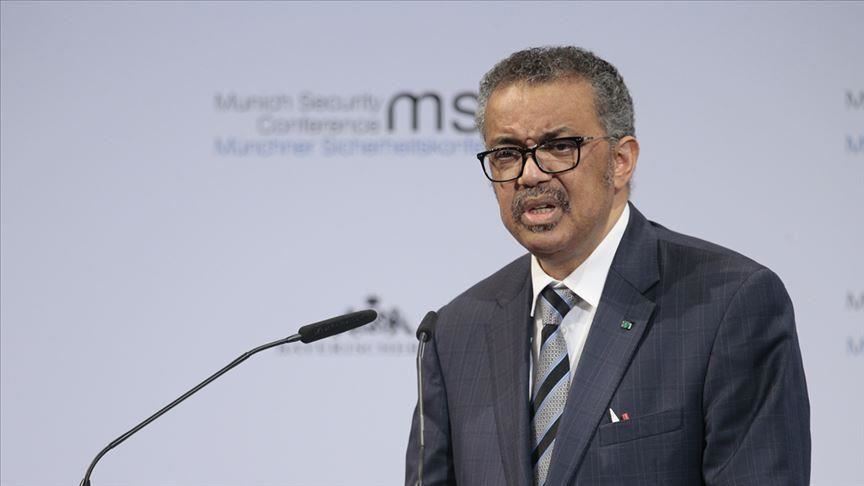WHO chief warns against ‘vaccine nationalism'
Tedros Adhanom Ghebreyesus calls on world leaders to share supplies to fight COVID-19 pandemic

GENEVA
The WHO chief on Tuesday called on countries to share their supplies to fight COVID-19 strategically and globally, warning against "supply nationalism" around the development of vaccines and medicines.
"While there is a wish amongst leaders to protect their own people first, the response to this pandemic has to be collective," WHO Director-General Tedros Adhanom Ghebreyesus said at a twice-weekly media briefing.
"Sharing finite supplies strategically and globally is actually in each country's national interest. No one is safe until everyone is safe," Tedros said.
The WHO lists 25 candidate vaccines in clinical evaluation and 139 in preclinical evaluation to fight the novel coronavirus.
Six COVID-19 vaccine candidates have reached the Phase 3 level, according to the WHO.
Three are from China, one is developed by a British-Swedish company working with Oxford University and two by US scientists.
The WHO reacted cautiously to Russia’s announcement of preparing to start a mass vaccination campaign against the novel coronavirus in October, saying the organization has established guidelines for producing vaccines.
"No one country has access to research and development, manufacturing, and all the supply chain for all essential medicines and materials," said Tedros on Tuesday.
"And if we can work together, we can ensure that all essential workers are protected, and proven treatments like dexamethasone are available to those who need them."
‘One of toughest challenges’
He said that every new disease outbreak presented new challenges, but from a logistics perspective, COVID-19 has been “one of the toughest challenges” ever faced by WHO.
When it came to personal protective equipment (PPE) at the beginning of the pandemic, some countries had imposed export restrictions, and there were several instances of requisitioning key medical supplies for national use, he said.
"Supply nationalism exacerbated the pandemic and contributed to the total failure of the global supply chain," said Tedros.
It meant that for a period, some countries were without crucial supplies, such as key items for health workers who were dealing with surging cases of COVID-19.
"The lessons learned from the distribution of these supplies will be important as we look to ensure that our supply chains and systems are honed for future breakthroughs from the ACT-Accelerator," said Tedros.
The ACT-Accelerator is a global collaboration launched by WHO to accelerate development, production, and equitable access to COVID-19 tests, treatments, and vaccines.
According to the WHO, the governments of Austria, Belgium, Canada, France, Germany, Italy, Mexico, Morocco, New Zealand, Norway, Saudi Arabia, South Africa, Spain, and the United Kingdom, and the European Commission have so far committed to the ACT-Accelerator.
China, Russia, and the US have not been named part of it.
Anadolu Agency website contains only a portion of the news stories offered to subscribers in the AA News Broadcasting System (HAS), and in summarized form. Please contact us for subscription options.


